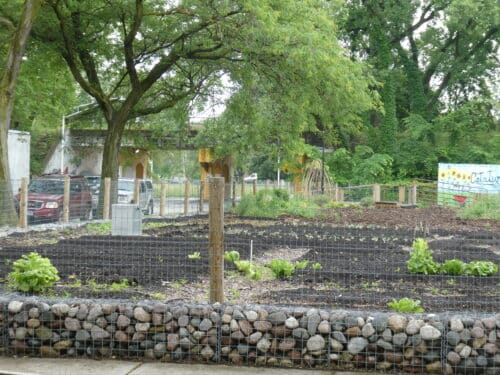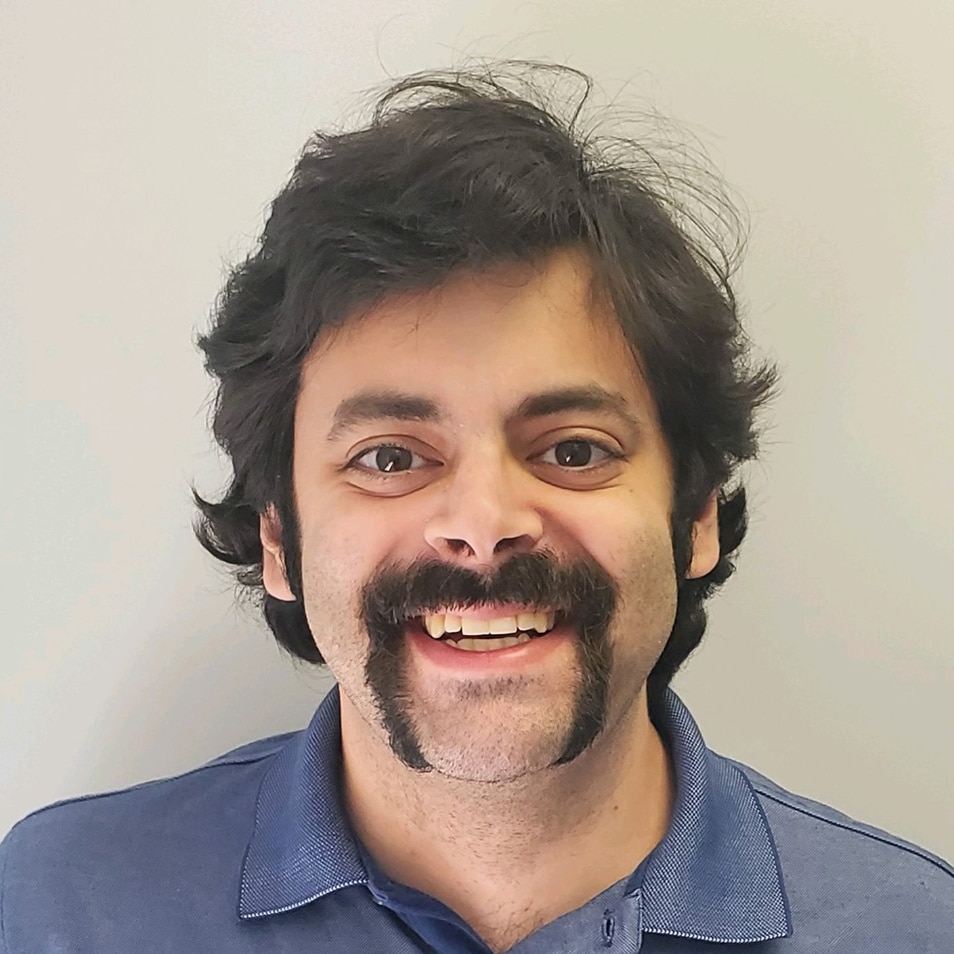Little Apothecary plants the seed of ‘people’s medicine’ in Chicago’s Englewood neighborhood
In the middle of a community garden in Englewood sits a red box, labelled “free medicine.” Inside the box is a treasure trove of herbs and salves: mugwort, beeswax, yaro, and other natural ointments for various conditions.
This Free Little Apothecary is the brainchild of Loyola University medical student and community farming advocate Sharmain Siddiqui. She says she hopes that the project showcases a sustainable and preventative model of medicine.
Plants have a “deeply medicinal power,” Siddiqui says. She began making herbal first-aid protest kits in May 2020 during the George Floyd uprisings for people protesting on the streets. That period, near the outset of the pandemic, saw an upsurge in free little library and free fridge initiatives around the city — individuals banding together to anonymously offer resources to their neighbors.
Siddiqui was an herbalism program assistant with farming nonprofit Urban Growers Collective at that time, and she connected with urban farmers, like Sistas in the Village, a nearby urban farm offering education about food, plants, and nutrition. Siddiqui partnered with Sistas and now runs their apothecary using plants grown on their farm.
Herbal medicine, or herbalism, is the foundation of nearly all medicine — western or traditional Chinese. Many modern medications are rooted in plants, such as the pain reliever morphine, which comes from poppies. Penicillin, one of the first antibiotics, grew out of a fungus. And drugs derived from flowers (the Madagascar periwinkle) treat childhood leukemia.
Nurturing plants and communities

Englewood, like many South Side communities, has faced its share of environmental health problems. The area’s industrial past has left it with many vacant lots and a lot of contaminated soil, but many urban farmers — now cognizant of the issue — have put their farms through soil remediation and testing.
And Englewood specifically also has long been considered a food desert — an urban neighborhood without consistent access to fresh groceries and produce. In 2022, the local Whole Foods closed and was replaced with a Save-a-Lot franchise.
Many South Side communities suffer from a lack of green spaces and other places where people can improve their health, says Julia Lippert, PhD, who teaches health science at DePaul University.
“You can map the location of food deserts and food-deprived communities directly on top of rates of diabetes, obesity, and [any] kind of negative health outcome you can think of,” Lippert says. “Then add the lack of preventative care locations or health clinics. All of those things are connected.”
Not only is there a lack of medical access in Englewood, Siddiqui says, but also, “There’s medical mistrust in these communities. They’ve been subjected to medical racism.”
Englewood’s population, which has high rates of hypertension and high blood pressure, is 90% Black.
The Englewood growers didn’t create their apothecary to compete with modern medicine, but to offer alternatives and comfort to neighbors and the farmers themselves. Siddiqui includes information with the medicinal packets about their contents.
Chicago city leadership, including Mayor Brandon Johnson, have expressed interest in supporting community gardens, and started a grant program last summer. The program has so far invested $2 million in 18 new urban agriculture sites.
Yet, the scale of what any one urban farm or similar projects can do is not as large as the community space they create. Urban gardens nurtured by local farmers develop connections where people can come together to learn about healthy food and then share it with the rest of the community, Lippert says. “It’s not just about [one garden] trying to grow 500 tomatoes, but having a space where kids can come play in the dirt.”

Aaron Dorman is a reporter based in the Chicago area who specializes in environmental and/or technology issues. He doesn’t understand the difference between mostaccioli and baked ziti; thinks it might be a marketing scam.












